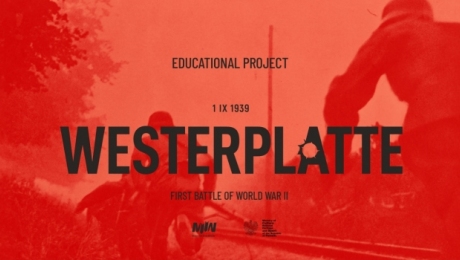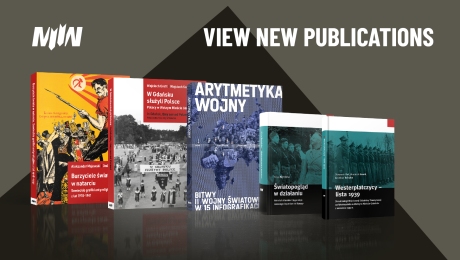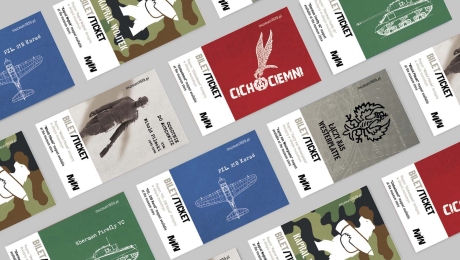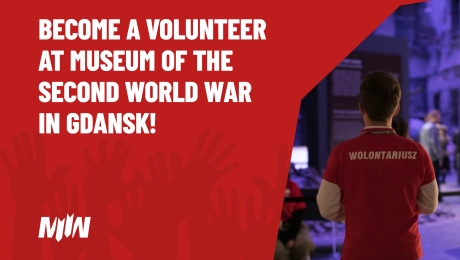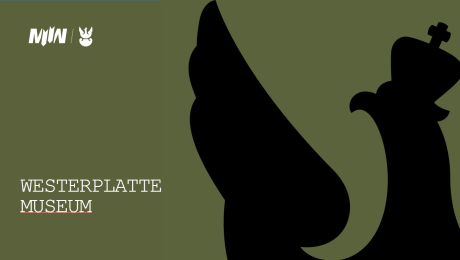Patron of the Award Lieutenant Colonel Jan Kowalewski
 Although often overlooked in history books and perhaps overshadowed by great commanders of the times of war, the Patron of the Award, Lieutenant Colonel Jan Kowalewski, the Polish officer deserves our utmost praise. By employing his acute intellect, he pursued the good cause, often changing the surrounding reality in spite of the severe limitations ha had to face daily.
Although often overlooked in history books and perhaps overshadowed by great commanders of the times of war, the Patron of the Award, Lieutenant Colonel Jan Kowalewski, the Polish officer deserves our utmost praise. By employing his acute intellect, he pursued the good cause, often changing the surrounding reality in spite of the severe limitations ha had to face daily.
Colonel Jan Kowalski was the founder of the Polish radio intelligence service. During the 1919-1921 war with the Bolsheviks he broke a number of Soviet ciphers which enabled the Polish command to reach strategic decisions that secure numerous victories, including in the Battle of Warsaw. For his merits he was awarded the V class Virtuti Militari Cross.
Jan Kowalewski was an outstanding Polish patriot – a soldier, intelligence officer, cryptologist, diplomat, salesman, spy, and writer. He was a thoroughly educated polyglot, with a sense of a combined perception of the world, a realist but also a romantic.
In his youth he studied in his hometown of Łódź, where he graduated from the School of Commerce. He continued his education in Belgium at the Faculty of Technical Chemistry. Shortly before the beginning of World War I, he left for Kievshchyna, where he took up the position of a chemical engineer. He was soon mobilized to the Russian army and sent to an officer school in Kiev. He joined the army for many years: initially in tsarist units, and later in the reborn Republic of Poland. Serving in the Polish units created by the Russians, he fought with the Germans near Kaniów. Shortly before Poland regained independence, he took the position of head of the intelligence unit in the 4th Division of Polish Rifle Shooters of General Lucjan Żeligowski.
Jan Kowalewski's further career was rapid. With the rank of a captain, he was assigned to the Cipher Section of the Second General Staff of the Polish Army. It was in this unit that the talent of a Polish officer was revealed. He unexpectedly deciphered some Soviet messages. This fact made his superiors to entrust him with a separate unit - Department II Special Ciphers in the Cipher Bureau. The team led by Kowalewski deciphered a huge number of Soviet ciphers, which made it possible to learn about the movements and decisions of the enemy. This had a huge impact on the outcome of the Polish-Bolschevik war. Kowalewski's achievements were of great importance during the counter-attack against the Soviet offensive towards Warsaw. The reading of the enemy messages allowed the Polish side to take effective defensive actions and to start the counter-attack. For his help in defeating the Soviets, Kowalewski was awarded the Virtuti Militari cross of the fifth class and promoted to the rank of a captain.
After the Bolshevik war, Kowalewski was sent to Central Lithuania, where he took command of one of the companies. Then he took part in the Third Silesian Uprising, where from 10 February 1921 he held the command of the 2nd (Information) Division of the Plebiscite Defence Command, and later of the 2nd Division of the General Staff of the Insurgent Army Command. The department led by him was codenamed "Czapla". Also there he confirmed his usefulness for the Polish army. Often risking his life he was carrying out intelligence work that contributed to the multiple detection of the directions of German attacks and the repulsion of their attacks.
Kowalewski passed on his skills and experience to the Japanese military during a course he conducted in the first half of 1923 in Tokyo. After returning to Poland, he was promoted to the rank of a major. He was also sent to the elite French Higher War School (École Supérieure de Guerre) for further studies (1925-1927).
After his return to Poland, Jan Kowalewski was delegated to work in Moscow. As a speaker of Russian (and several other languages), he was entrusted with the position of a military attaché in Moscow. He worked in the capital of the Soviet Union from 1929 to 1933, conducting intelligence actions for Poland. He sent numerous reports concerning the state of the Soviet army, as well as the moods prevailing in Stalin's country. He also tried to recruit agents for cooperation. In the meantime, he was promoted to the rank of Lieutenant Colonel. Eventually, due to the arrest of the janitor of the Polish Attaché (which most probably was in fact a planned political action, directed against the Polish post), in the spring of 1933 Kowalewski was forced to leave the capital of the USSR.
His successes so far have influenced the decision to delegate him to Bucharest, where he took up the position of a military attaché. In the Romanian capital, Kowalewski was to continue his work for the defence of Poland, in view of the possible Soviet aggression. During his three-year stay in Romania, Kowalewski contributed to renewing contacts between the two countries and establishing a network of contacts among the Romanian authorities, which proved extremely useful later.
Kowalewski returned to the Poland in 1937 and became involved in politics. He became the Chief of Staff of the National Unity Camp. Due to some differences of opinion, he resigned after less than a year. It was then that he was entrusted with the position in the Society for the Import of Raw Materials "Tissa". The main task of this company was to import strategic raw materials for the Polish defence industry. It is quite probable that it was also linked to the Division of the Second General Staff of the Polish Army.
After the outbreak of World War II, Jan Kowalewski took part in helping the civilian population of Warsaw. He also participated in the evacuation of the Polish authorities to Romania. After the defeat in the defensive war, he organized a committee to help refugees in this country, which he led until the end of 1939.
At the beginning of 1940 he left for France, where he wrote two memoranda on Poland. One of them concerned the possibility of establishing an agreement with the Soviets only if they recognized the Riga border as binding. The other addressed the Germans and concerned the easing of the sharp course towards the Polish population in the occupied country, which could form the basis for any agreement.
After the collapse of France, Kowalewski was sent to Portugal, where he was appointed head of the Continent Communications Office under the Ministry of the Interior and the information headquarters in Lisbon. It was a representative office of Continental Action, whose task was to fight against the German occupier on the territory of Europe on all levels (except for the armed struggle) and to collect political and economic information concerning the activities of the Axis countries.
Working in neutral Portugal, Kowalewski established a wide network of international contacts. He held talks with representatives of Hungary, Romania and Italy. Ultimately, the intention was to change the alliances by these countries. These actions, along with the change in the situation on the front, soon became inconvenient for the Allies, especially the Soviets and the British.
In the meantime, Kowalewski participated in the liberation of the Romanian King Charles II who, after his abdication and forced departure from the country, found himself on Spanish territory. Kowalewski, with the support of another Polish officer, Major Zdzisław Żórawski, led to the release of the Romanian monarch and his departure for Portugal. This intelligenc operation was an individual initiative of Kowalewski and Żórawski, with no suport from any Polish authorities.
Eventually, Kowalewski's actions aimed at pulling Italy, Romania and Hungary away from the alliance with Hitler failed to achieve anything in view of the declaration of the western powers concerning the unconditional capitulation of the Axis States in 1943. The Polish officer left for the United Kingdom, where he was appointed head of the Polish Special Operations Office at S.F.H.Q. (Special Forces Headquarters). Appearing under the pseudonym "Zenon", he coordinated the preparation of Polish sabotage and diversion troops for the operation "Overlord", i.e. the invasion in Normandy.
After the end of World War II, he remained in exile. In London, since 1950, he published the periodical East Europe and Soviet Russia. In the years 1958-1959 he was the chairman of the College of Higher Education in London. His passion for breaking ciphers did not disappear with age and separation from his country. He deciphered Romuald Traugutt's Cipher, the dictator of the January Uprising and Bishop Załuski's Cipher.
Jan Kowalewski died of cancer on October 31, 1965 in London.






